
As the United Nations marks its 80th anniversary in 2025, this report by the Department of Economic and Social Affairs (UN DESA) traces the evolution of sustainable development within the UN system. It highlights the organization’s role in shaping both the understanding and the practical application of sustainable development.

The UN DESA Annual Highlights report is a tool to communicate the contributions of the Department to the realization of internationally agreed development goals and shared social, economic, and environmental aspirations. It showcases the Department’s role in gauging trends, building capacities, and shaping solutions. UN DESA Highlights 2025 covers activities over the period of the 79th Session of the General Assembly (September 2024 – August 2025) and reflects the Department’s response to the set priorities and expressed needs of Member States. Seven (7) thematic chapters showcase how UN DESA put its expertise to the task of supporting Member State efforts to implement the 2030 Agenda…

The Sustainable Development Goals Report 2025 marks the tenth annual stocktaking of global progress toward the 2030 Agenda for Sustainable Development. With the 2030 deadline only five years away, the report delivers a stark assessment: the Sustainable Development Goals have improved millions of lives, but the current pace of change is insufficient to fully achieve all the Goals by 2030.
The report reveals real and substantial development gains during the past decade. Since 2015, the world has made notable strides in expanding access to education, improving maternal and child health, and bridging the digital divide. Effective prevention efforts have significantly reduced the…
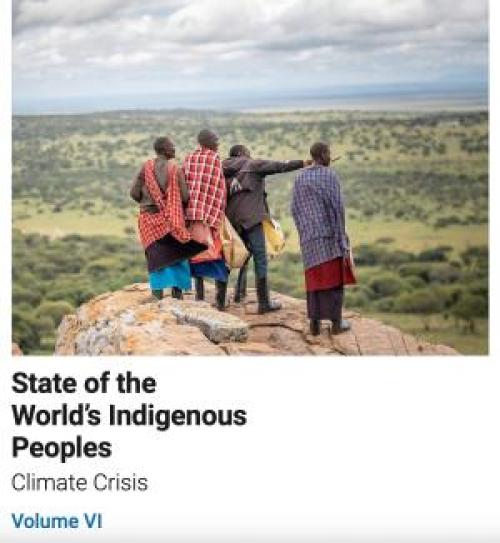
The sixth edition of the State of the World's Indigenous Peoples focuses on Climate Crisis. It focuses on the vital role of Indigenous peoples in addressing the impacts of climate change. Although Indigenous Peoples account for only around 5 per cent of the world’s population, they effectively manage and protect an estimated 80 per cent of the Earth’s biodiversity and about 40 per cent of protected areas and ecologically intact landscapes. Since Indigenous Peoples first came to the United Nations, they have emphasized the fundamental importance of their relationship with their lands, territories and resources, which hold a deep cultural and spiritual significance within their societies…
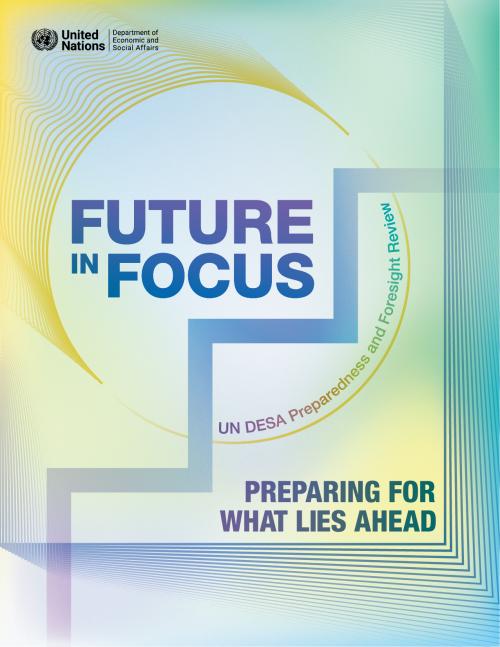
In an era marked by complex and interwoven crises, the role of the United Nations in preparing for the future has never been more critical. This review of UN DESA’s foresight and preparedness efforts shows how the Department’s economic and demographic forecasts, capacity development programmes, and work towards accelerating an inclusive and just transition help governments and people make strategic choices to shape and prepare for the future they want.
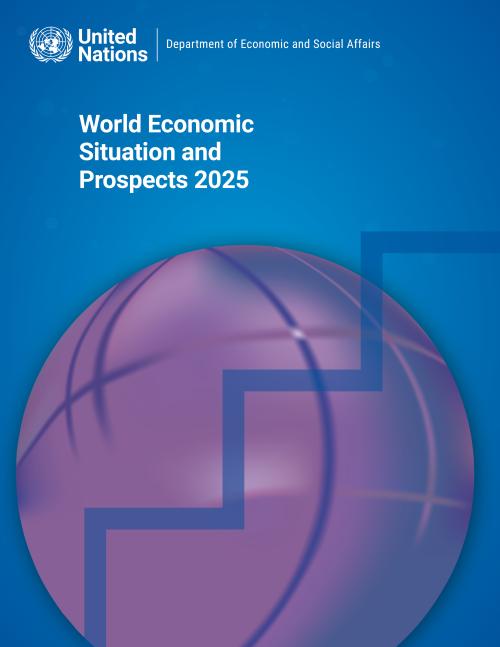
Global economic growth is projected to remain at 2.8 per cent in 2025, unchanged from 2024, according to the United Nations flagship report, World Economic Situation and Prospects (WESP) 2025. While the global economy has demonstrated resilience, withstanding a series of mutually reinforcing shocks, growth remains below the pre-pandemic average of 3.2 per cent, constrained by weak investment, sluggish productivity growth, and high debt levels.
The report notes that lower inflation and ongoing monetary easing in many economies could provide a modest boost to global economic activity in 2025. However, uncertainty still looms large, with risks stemming from geopolitical conflicts,…
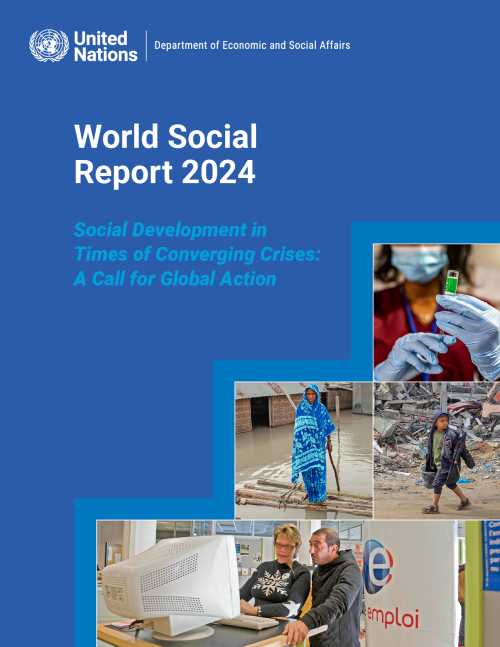
According to the World Social Report 2024, urgent global action is needed to support national efforts to address the setbacks caused by the recent global crises, and to avoid the conversion of future shocks to crises.
Titled “Social Development in Times of Converging Crises: A Call for Global Action”, the World Social Report 2024 explains that, in our current global policy environment, shocks more readily turn into crises that cross boundaries, demanding international action. Particularly as such crises disproportionately impact the most vulnerable people, societies and countries.
Crisis-driven setbacks in poverty reduction and unemployment
Successive shocks,…
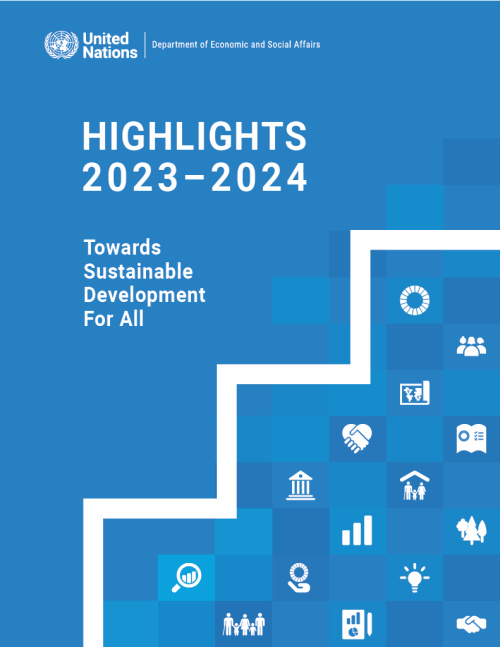
The UN DESA Annual Highlights report is a tool to communicate the contributions of the Department to the realization of internationally agreed development goals and shared social, economic, and environmental aspirations. It showcases the Department’s role in gauging trends, building capacities, and shaping solutions. UN DESA Highlights 2023–2024 covers activities over the period of the 78th Session of the General Assembly (September 2023 – August 2024) and reflects the Department’s response to the set priorities and expressed needs of Member States. Seven (7) thematic chapters showcase how UN DESA put its expertise to the task of supporting Member State efforts to implement the 2030…
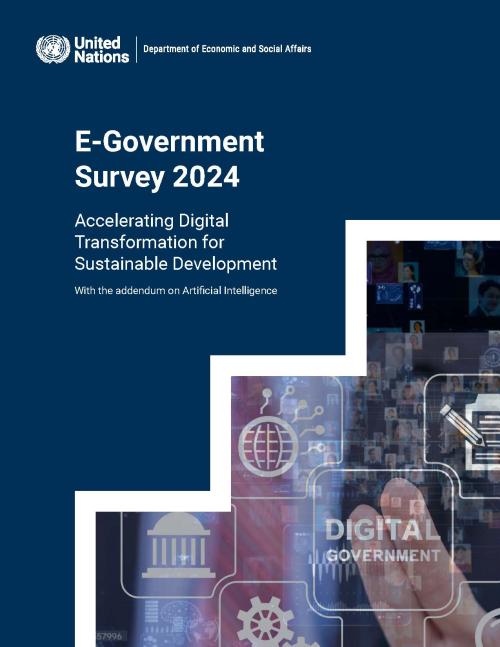
This thirteenth edition of the United Nations E-Government Survey, released in 2024, provides a comprehensive assessment of the digital government landscape across all 193 Member States. The 2024 Survey highlights a significant upward trend in the development of digital government worldwide, with increased investment in resilient infrastructure and cutting-edge technologies. The global average value of the E-Government Development Index (EGDI) shows substantial improvement, with the proportion of the population lagging in digital government development decreasing from 45.0 per cent in 2022 to 22.4 per cent in 2024.
Despite significant progress in digital government…
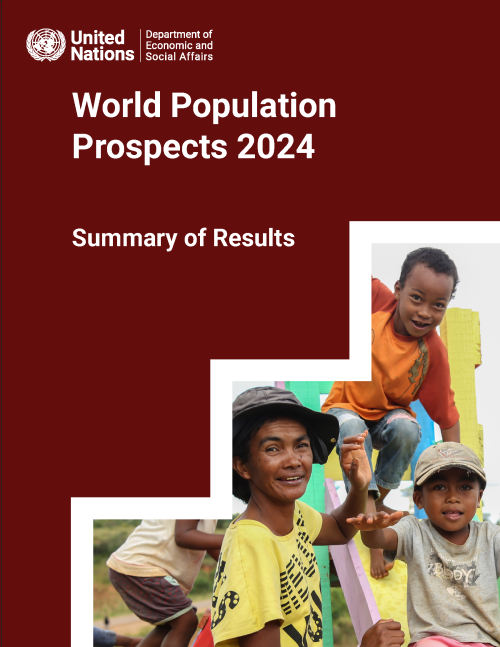
World Population Prospects 2024: Summary of Results adopts the analytical framework of the demographic transition—the historic shift towards longer lives and smaller families—approximated here by the timing at which populations peak in size, to explore differences in population trends that characterise countries and regions today and provide insight into their future trajectories. The report also offers policy recommendations to prepare countries for a population size, age structure and spatial distribution that may differ appreciably from that of their recent past.
World Population Prospects 2024 is the twenty-eighth edition of the official United Nations population…
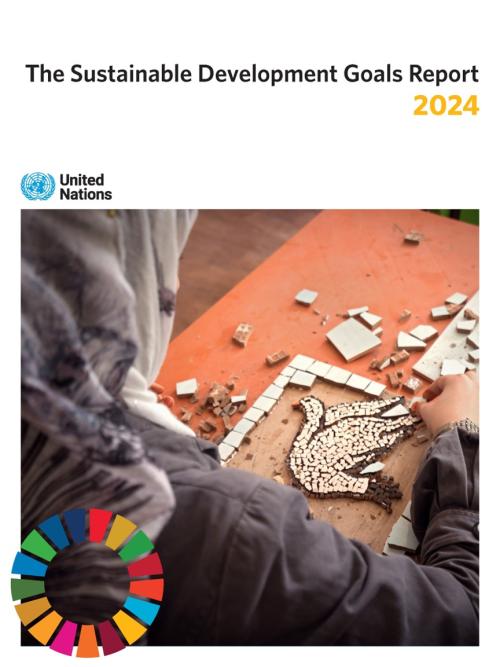
The Sustainable Development Goals Report 2024 details the significant challenges the world is facing in making substantial strides towards achieving the SDGs based on the latest data and estimates. It features areas with setbacks while also showcasing where tangible progress has been made, for instance, in reducing global child mortality, preventing HIV infection, and access to energy and mobile broadband. The report also highlights where action must accelerate, particularly in critical areas undermining SDG progress - climate change, peace and security, inequalities among and between countries, among others.
According to the report, with just six years remaining, current progress…
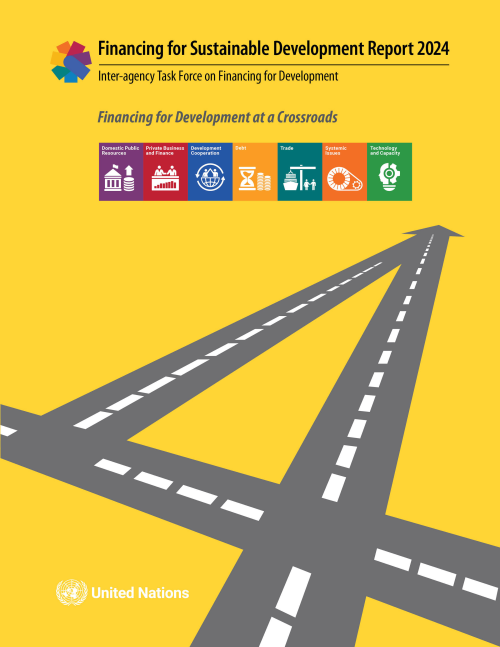
The world is facing a sustainable development crisis. The 2024 Financing for Sustainable Development Report: Financing for Development at a Crossroads finds that financing challenges are at the heart of the crisis and imperil the SDGs and climate action. The window to rescue the SDGs and prevent a climate catastrophe is still open but closing rapidly.
Financing gaps for sustainable development are large and growing – the estimates by international organizations and others are coalescing around $4 trillion additional investment needed annually for developing countries. This represents a more than 50% increase over the pre-pandemic estimates. Meanwhile, the finance divide has not…
 Welcome to the United Nations
Welcome to the United Nations